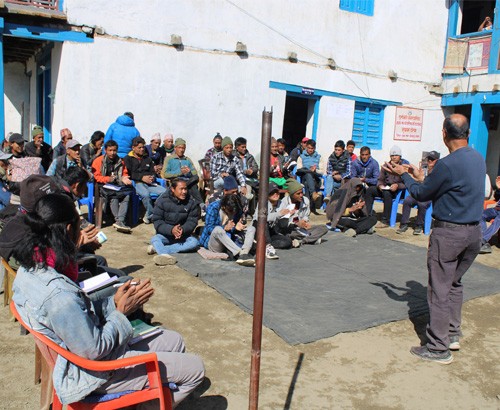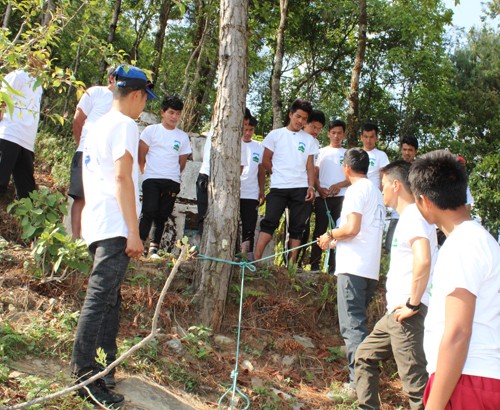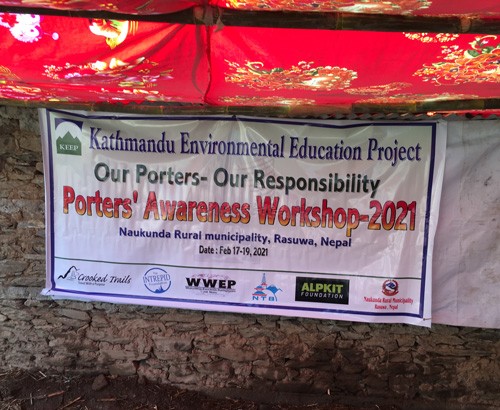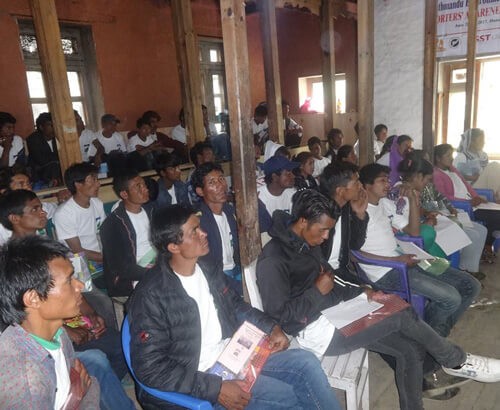For the Benefit of the Mountain Porters:
Porters’ play a vital role in Nepal's tourism industry; they enable millions of tourists to visit picturesque areas while also providing their families with much-needed earnings. Therefore, through education KEEP hopes to bring awareness among porters’ to improve their working conditions.
The Porter’s Awareness Workshop is one of KEEP’s major activities that educate porters’ about their rights in relation to the International Labour Organisation’s standards for decent work. This includes developing an understanding of safety, health, hygiene, and general First Aid. KEEP also aims to inform porters about appropriate trekking clothing and how to access KEEP’s Porter Clothing Bank.
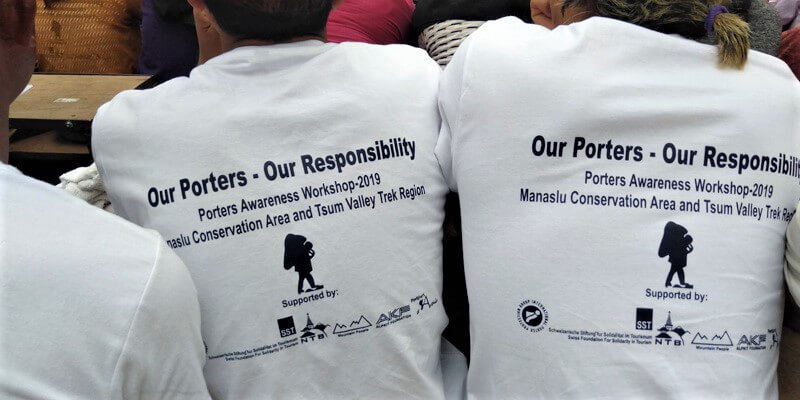
How you can help
We always appreciate any contribution you can make to the Porters’ Clothing Bank.
Financial donations are greatly appreciated and are preferred over donations of clothing as we can then purchase new clothing in Nepal and cover the costs of repair and replacement of items.
Please make payments via wire transfer to KEEP’s offices in Nepal or the UK, indicating in the payment reference that you are donating to the PCB.
KEEP BANK DETAILS: In Nepal
KEEP
Account number: 01-0140872-51
Standard Chartered Bank Nepal Limited
Lazimpat, Kathmandu, Nepal
SWIFT CODE: SCBLNPKA
OR
Kathmandu Environmental Education Project
A/C 038011050000813
Sanima Bank Limited
Nayabazar - Kathmandu - Nepal
Phone: +977-01-5970033
SWIFT: SNMANPKA
Donate used clothing
Usually donations of used jackets and trousers/pants from Westerners do not fit Nepali porters who tend to be smaller.
However, donations of other clothing items such as socks, boots, sunglasses, warm gloves, and sleeping bags are always welcome.
Please bring your donations in person or send them to
KEEP's office in Thamel.
Project partners
We would like to take this opportunity to thank all the supporters of the Porters’ Clothing Bank project including:
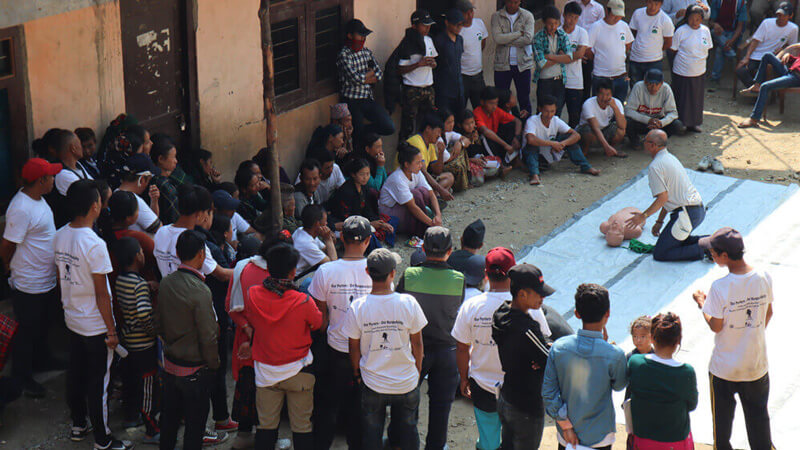
Special thanks to Dr. Jim Duff
- International Porters Protection Group
- International Mountain Explorer Connection
- Community Action Nepal
- Intrepid Travel
- Mountain Kingdom UK
- Porters’ Progress UK
- The Mountain Fund
- Trekking Encounters Ltd.
- World Expedition
- Ramesh Dhamala
- Karen Valenti
- Elsie James
- Scott McLenan
- Ian Wall
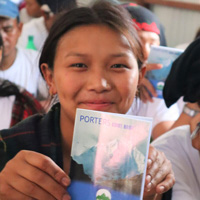
In 1997 a young Nepali porter employed by a trekking company became severely ill with altitude sickness. He was paid off and sent down the mountain alone. It took just 30 hours for him to die. He was 20 years old and left behind a wife and two small children.
KEEP Porter’s Clothing Bank (PCB) was established in September 2009, with the objective to provide a service to porters with a complete and better clothing sets suitable for trekking in a high hill and harsh mountains of Nepal and reduces the number of unnecessary illnesses and fatalities which occur each year.
The year 2015 was a successful year for KEEP PCB. According to the PCB database, we have able to lend its items to about 1000 porters (spring and autumn seasons). Trekking companies have benefitted greatly and appreciate KEEP’s service. 600 pairs are in demand every year. Due to limited stock, many porters could not obtain the needed equipment. Consequently our porters would greatly appreciate your support to continue this humanitarian effort.
The PCB also educates tourists, trekking agencies and porters alike about the acceptable standard of treatment for porters and the need to improve porter access to appropriate clothing and equipment.
The majority are subsistence farmers who travel from lower areas of Nepal to the higher elevated trekking routes to find employment.
Contrary to the belief that porters are well-adjusted to the cold and altitude of the Himalayas, every year many porters suffer from a variety of illnesses such as altitude sickness, snow blindness, hypothermia and frostbite and some even die as a result.
Many porters are uneducated about the risks of high-altitude trekking and lack the basic equipment needed. If porters do become ill in the mountains they are often denied adequate medical attention and are instead paid-off to travel down alone to face the problem of finding and affording emergency treatment.
